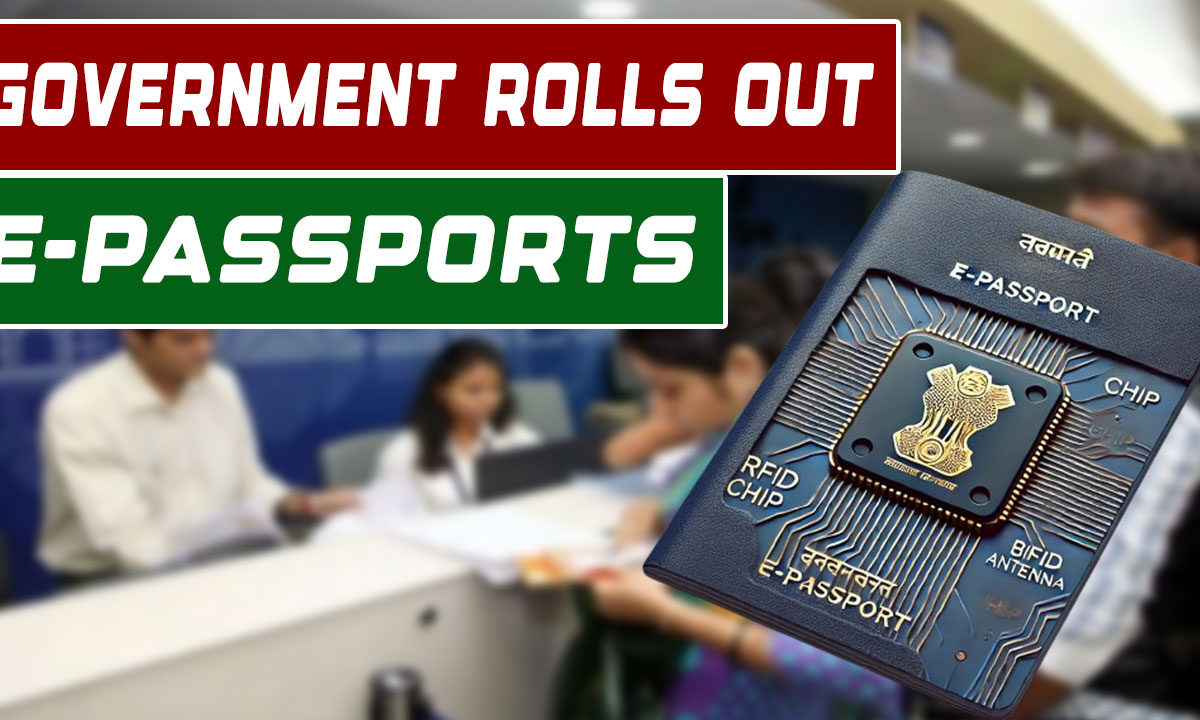Government Rolls Out e-Passports — Which Cities Are Covered? What’s New? Can You Still Use Your Old Passport? Check Full Details
India has officially rolled out the first phase of its next-generation e-passport initiative in 13 major cities, combining traditional paper passports with embedded electronic technology for enhanced security and identity verification.

India has officially rolled out the first phase of its next-generation e-passport initiative in 13 major cities, combining traditional paper passports with embedded electronic technology for enhanced security and identity verification.
Table of Contents
What Is e-Passports?
The e-passports feature a gold-coloured symbol on the front cover and include a Radio Frequency Identification (RFID) chip and antenna embedded within the passport inlay. This chip securely stores the holder’s biometric and personal information, which can be verified using Public Key Infrastructure (PKI), ensuring authenticity and reducing the risk of tampering or identity theft.
Pilot to Nationwide Rollout by Mid-2025
According to the Ministry of External Affairs (MEA), the project is part of the Passport Seva Programme (PSP) Version 2.0, which was initiated in April 2024. This first phase covers cities including Delhi, Hyderabad, Chennai, Surat, Jaipur, Nagpur, Bhubaneswar, Jammu, Goa, Shimla, Raipur, Amritsar, and Ranchi.
The MEA stated that a nationwide implementation of e-passports is expected to be completed across all Passport Seva Kendras by mid-2025.
Tamil Nadu Takes the Lead
Tamil Nadu was one of the early adopters, launching the issuance of e-passports on March 3, 2025, from the Chennai Regional Passport Office. By March 22, the state had already issued 20,729 e-passports, setting a strong example for other regions.
Key Benefits of e-Passports
- Improved security: Enhanced protection against tampering and identity forgery.
- Faster verification: Integrated electronic chip allows quick authentication at international borders.
- Global standards: Aligns with international practices for secure travel documents.
Existing Passports Remain Valid
The MEA has clarified that switching to an e-passport is optional, and all current passports will remain valid until their expiration. There is no need to apply for an e-passport unless one’s passport is up for renewal or re-issuance.
This move represents a major step in India’s efforts to modernize its passport system and safeguard against emerging threats in global travel.

